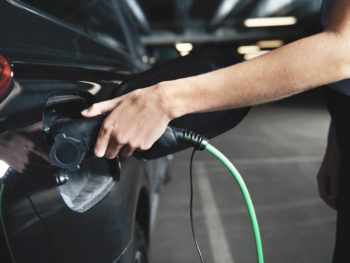New technology to re-shape EV charging, says Delta-EE
Europe’s electric vehicle charging sector is set for rapid change during the next five years, driven by new technology and customer demands for convenience, according to Delta-EE, warning that stakeholders will need to re-focus to retain a foothold in the market.

In the future, drivers could see payment for charging linked in with their monthly vehicle lease, added to their utility bill or sent to their employer for fleet mileage
In its recent webinar, the clean energy research and consultancy company highlighted that Europe already has a widespread network of 190,000 charging points. Three-quarters of them are in five markets: the Netherlands, Germany, France, the UK and Norway. All except the Netherlands are already ahead of the EU’s Alternative Fuels Infrastructure Directive of one point per 10 vehicles on the road, the company added.
Greater interoperability, including across borders, is already happening. Several charging point operators now have units in multiple countries, and ‘emobility service providers’ (EMSPs) are aggregating location information and billing within a single account. In some cases they have been able to do so without owning the units themselves, while others have been able to provide white-labelled services to banks and vehicle manufacturers.
Delta-EE’s EVs and electricity research service manager, Alexander Lewis-Jones, expects greater interest from carmakers in future, particularly once the ISO 15118 standard is introduced in 2025. This is a communication protocol for the widely Combined Charging System (CCS) connector, which enables vehicle-to-grid functionality and for the chargers to recognise the car without the need for a membership card – similar to Tesla’s Supercharger network.
“Authorisation and payment of charging via the car has been shown to be a preferred convenience factor with Tesla drivers today. For manufacturers with greater appetite for service-based business models, the opportunities that ISO 15118, with other connected-car technologies, offer are abundant,” he told Fleet World.
“Payment for charging can be linked in with your monthly lease of the vehicle, added to your utility bill or redirected to your employer for fleet mileage. The automotive brand now has access to customer relationships that were never possible before.”
Pay-as-you-go access, which is now mandatory for rapid chargers in the UK, also poses a challenge for EMSPs, as it potentially removes them from the customer experience, Lewis-Jones said, adding that it could focus suppliers on adding value elsewhere. This could include brokering cheaper rates, reserving points or plotting routes which balance time requirements and the cost of high-powered charging.
“The market is primed for greater mobility aggregation services that take this decision-making away from the EV owner. By building in smarter charging allocation and reservation into journey planner apps, software firms may hold the algorithm that decides whether your chargepoint is utilised or not,” he said.

















